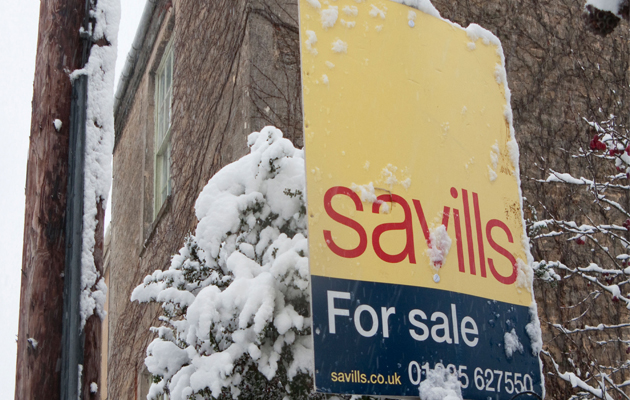The case against mansion tax
Arabella Youens investigates the flaws in this controversial proposed measure.


The idea for a ‘mansion tax’— that is, an annual tax on properties worth £2 million or more—was initially proposed five years ago, but has since been adopted in various forms by the Labour Party, the SNP and the Green Party. Advocates claim it would raise between £1 billion and £2 billion a year. Although Labour has yet to confirm details, it has indicated it is looking to set the charge at £3,000 per annum for properties worth between £2 million and £3 million.
In a recent report for the Centre for Policy Studies, Lucian Cook of Savills Research establishes the principal flaws in the proposed tax: that it would yield insignificant revenues, target London homeowners in the majority, be expensive and complex to administer and take no account of the ability of the homeowner to pay. ‘It’s based on a crude gross, not net, calculation of wealth,’ he explains.
Furthermore, any case for such a levy has been diminished by significant tax reforms introduced since it was first mooted. In 2009, Stamp Duty (SDLT) was levied at 4% on the sale of properties worth more than £2 million—that level was increased to 5% in April 2011 and then 7% in March 2012. Then, on December 3, 2014, the Chancellor announced new SDLT rates, which effectively mean that the average rate of tax paid on properties worth more than £2 million now exceeds 10%. ‘That means that the tax paid on a house now being sold in south-west London for £2.5 million has increased by 405% since 2009,’ calculates Mr Cook.
Poor foundations The proposed tax doesn’t differentiate between those who have the means to pay and those who don’t and it doesn’t address the question of whether or not there is a mortgage on the property. ‘A person owning two properties worth £1.9 million each with no mortgage debt would pay no tax, but, perversely, a person owning a single property worth £2.1 million with a £1.5 million mortgage would be caught,’ says Mr Cook.
Listed-property owners Under the current proposals, there’s no allowance for the annual costs of upkeep of some of the country’s most important listed buildings. As Dawn Carritt of Jackson-Stops & Staff points out, a ‘mansion tax’ will be particularly painful for those who live in properties that have been passed down through the family to owners who are asset-rich but cash- poor. ‘And it’ll discourage owners from investing in period outbuildings to keep them in good order.’
Administrative costs It’s anticipated that a ‘mansion tax’ would require homeowners who are potentially liable to the tax to obtain and pay for the cost of a valuation. Although it’s relatively easy to compare like-for-like houses in London, when it comes to the country-house market, valuations are far more subjective and are really only established at the point of sale.
Valuations that come in close to the cut-off point of £2 million are likely to be reviewed by HMRC and, if the case is borderline, it seems inevitable that there would be a formal dispute, which would be costly to resolve.
Sign up for the Country Life Newsletter
Exquisite houses, the beauty of Nature, and how to get the most from your life, straight to your inbox.
The unknown sums We don’t know how the charging structure of the tax will work for properties worth more than £3 million, but, in order to raise a gross revenue of £1.2 billion, Savills has calculated that the levy against properties worth between £3 million and £5 million would need to be in the order of £7,000 a year, rising to £125,000 a year for properties worth more than £20 million.
Wider impact The negative impact on property values would further erode revenues from other property taxes over the long term. Savills has calculated that SDLT revenue of at least £160 million would be lost each year due to the imposition of a ‘mansion tax’, with a further reduction of at least £25 million expected in Inheritance Tax (IHT) receipts. In simpler terms, this means £1 in every £6 raised by a ‘mansion tax’ would be lost in SDLT and IHT receipts.
Foreign investors Mr Cook concludes: ‘It should be remembered that wealthy overseas investors operate in a particularly competitive global environment. Such a tax would send a strong message that these investors in the UK would be facing a punitive and uncertain tax regime–a message that poses perhaps the greatest risk of all.’
Need to know
- 80% of affected proper- ties are in London.
- The proposals take no account of an individual’s ability to pay the tax and would be based on a crude gross, not net, calculation of wealth.
- The tax would be expensive and complex to administer; valuations in this part of the market are inherently subjective.
- However, it has mass appeal: a September 2014 poll by YouGov found that 72% of respondents supported the idea.

Credit: Alamy
Scottish Stamp Duty replaced
Stamp Duty Land Tax will cease to apply in Scotland on 31 March, 2015, and is to be replaced by

Which London properties would pay mansion tax?
There are 11,462 homes in London worth more than £2m, which could face mansion tax if the bill is passed.

Stamp Duty reform revealed
George Osbourne has revealed that Stamp Duty on home purchases is to be reformed from midnight tonight.
-
 Burberry, Jess Wheeler and The Courtauld: Everything you need to know about London Craft Week 2025
Burberry, Jess Wheeler and The Courtauld: Everything you need to know about London Craft Week 2025With more than 400 exhibits and events dotted around the capital, and everything from dollshouse's to tutu making, there is something for everyone at the festival, which runs from May 12-18.
By Lotte Brundle Published
-
 Everything you need to know about private jet travel and 10 rules to fly by
Everything you need to know about private jet travel and 10 rules to fly byDespite the monetary and environmental cost, the UK can now claim to be the private jet capital of Europe.
By Simon Mills Published
